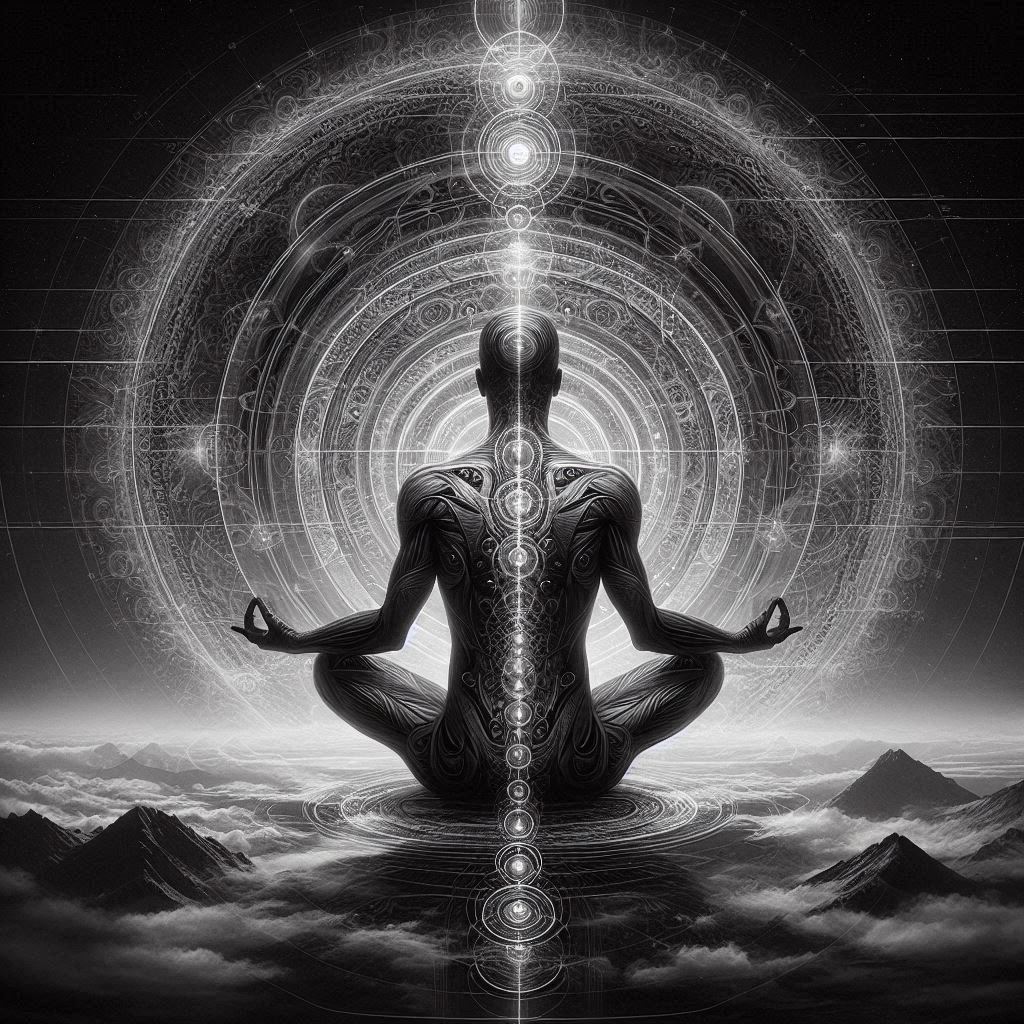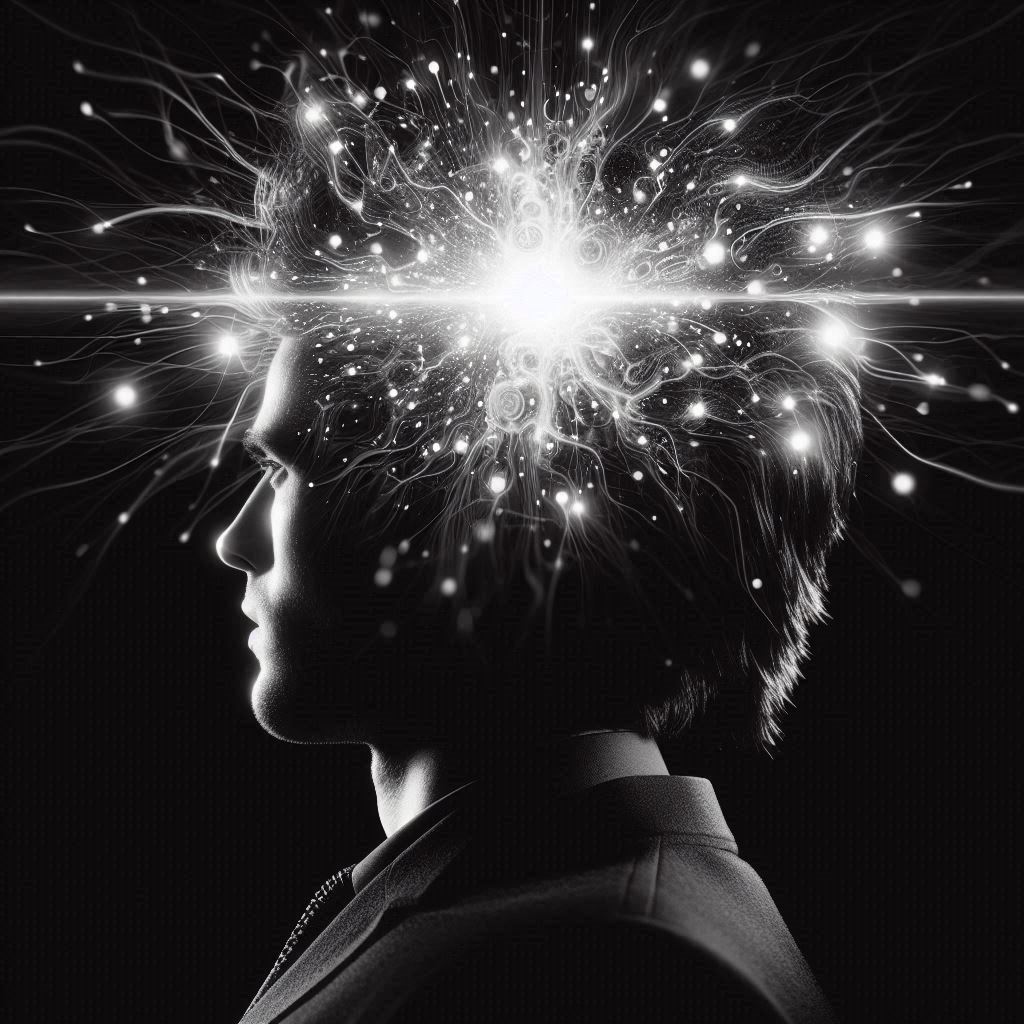Anxiety and stress are common companions in our daily lives now more than ever. But what if there was a simple, yet powerful, way to cut through the noise and find a bit of peace? Enter minimalism—a lifestyle that champions less stuff, fewer commitments, and a clearer mind. By focusing on what truly matters, minimalism has the potential to alleviate stress and reduce anxiety. Ready to explore how simplifying your life can make a real difference? We’ve got you covered with seven practical ways minimalism can help you breathe easier and live lighter.
Declutter Your Physical Space
In a chaotic world brimming with distractions, finding a sanctuary of calm and clarity is invaluable. One of the fundamental principles of minimalism is decluttering your physical space to declutter your mind. By simplifying our surroundings, we pave the way for a sense of tranquility to permeate our lives.
Practical Tips for Decluttering
Here are some practical steps to embark on your decluttering journey:
- Start Small: Begin with a manageable area like a drawer or a single shelf. Small victories make the bigger tasks less overwhelming.
- Sort Methodically: Create three piles – keep, donate, and discard. Be ruthless in evaluating the necessity and joy each item brings.
- Organize Efficiently: Invest in practical storage solutions like bins and baskets to maintain order. Use labels to keep things in their proper place.
- Letting Go: Embrace the liberating feeling of letting go of possessions that no longer add value to your life. Remember, minimalism is about quality over quantity.
When you set out to declutter, keep in mind the psychological benefits of a tidy environment. Research indicates that a clutter-filled space can lead to stress and anxiety, while a neat and organized setting enhances mental clarity and focus. A minimalist environment fosters an atmosphere that nurtures your sense of well-being.
For a wealth of inspiration and expert advice, look to renowned decluttering figures such as Marie Kondo and The Minimalists. These experts advocate for the transformative power of a minimalist lifestyle to bring peace and order into your physical and mental space.
As you venture down this path, remember that the journey to a clutter-free life is a personal one. But the sense of accomplishment and tranquility that comes from a clean and orderly environment is universally uplifting.
Embrace Minimalist Mindset
Transitioning to a minimalist mindset involves a profound shift from consumerism to intentional living, where the focus shifts from accumulating possessions to cherishing experiences. By embracing this shift, individuals can effectively reduce anxiety and stress by prioritizing what truly matters in life.
Mindful Consumption Habits
To cultivate a minimalist mindset, it’s essential to adopt mindful consumption habits. Being more conscious about what you bring into your life, from physical purchases to digital content, can make a significant difference in your sense of well-being.
Here are some ways to be more mindful about your consumption:
- Evaluate Necessity: Before buying something, ask yourself if it’s really necessary. Does this item add value to your life or is it just a temporary desire?
- Digital Diet: Be selective about the content you consume online. Unsubscribe from emails that don’t serve a purpose, unfollow social media accounts that don’t inspire you, and curate a digital environment that uplifts you.
- Quality Over Quantity: Focus on purchasing fewer, but higher-quality items. Whether it’s clothing, kitchenware, or gadgets, investing in quality means fewer replacements and less clutter.
- Experiences Over Things: Shift your focus from owning objects to creating memories. Spend money on experiences like traveling, dining out, or taking a class. These experiences often provide more lasting happiness than material possessions.
Embracing mindful consumption means making deliberate choices about what you let into your life. This doesn’t only affect physical space or bank accounts, but also mental space and well-being. Conscious consumption helps eliminate distractions and creates a tranquil environment where you can focus on what truly brings joy and fulfillment.
Why does this matter? Because consciously deciding what to allow into your life reduces clutter and stress. It’s about saying no to constant input and yes to meaningful additions.
For more insights on mindful consumption, take a look at Becoming Minimalist for tips on intentional living. Or visit The Simple Dollar to get advice on making conscientious spending decisions.
By engaging in mindful consumption practices, you’re not just freeing up space in your home; you’re clearing mental clutter as well. This paves the way to a life centered on purpose and joy, free from the burdens and stresses of excess.
Create Mental Space
In the journey towards minimizing anxiety and stress, creating mental space is a crucial step. Just as decluttering our physical surroundings can bring a sense of calm, simplifying our mental landscape is equally impactful in promoting well-being. Let’s explore how mindfulness practices can help clear the mental clutter and foster a more peaceful state of mind.
Mindfulness Practices
Mindfulness is a powerful tool for combating stress and anxiety. It involves bringing your awareness to the present moment without judgment, helping you to engage fully with your current experience.
Benefits of Mindfulness
Mindfulness can bring several benefits that directly affect your anxiety and stress levels:
- Reduces Stress: Regular mindfulness practice can lower cortisol levels, the hormone associated with stress.
- Improves Focus: By training your mind to focus on the present, mindfulness enhances concentration and decision-making ability.
- Lowers Anxiety: Mindfulness encourages you to observe your thoughts without getting consumed by them, which can significantly reduce anxiety levels.
- Enhances Emotional Regulation: Being mindful helps you become more aware of your emotional reactions, allowing you to handle challenging situations better.
Simple Mindfulness Exercises
Incorporating mindfulness into your daily routine doesn’t have to be complicated. Here are a few easy exercises to get you started:
- Deep Breathing:
- How to do it: Sit or lie down comfortably, and take a deep breath in through your nose, letting your belly expand. Slowly exhale through your mouth. Repeat for a few minutes.
- Benefits: Deep breathing calms your nervous system, reduces stress, and increases oxygen flow to the brain.
- Body Scan:
- How to do it: Starting at your toes, slowly move your attention up through the different parts of your body. Notice any areas of tension and try to relax them.
- Benefits: This exercise helps you become more aware of your body, alleviates physical tension, and promotes relaxation.
- Mindful Walking:
- How to do it: As you walk, pay attention to the sensation of your feet hitting the ground, the rhythm of your breathing, and the environment around you.
- Benefits: This practice grounds you in the moment, providing a break from racing thoughts and reducing anxiety.
Creating mental space through mindfulness is like hitting the reset button for your brain. It clears away the mental clutter and makes room for calm and clarity. For more guidance on mindfulness practices, check out Headspace’s comprehensive guide and Mindful’s wealth of resources. Engaging with these exercises regularly can be a game changer in your journey towards a more stress-free life.
Prioritize Quality Over Quantity
In a world constantly bombarding us with messages to acquire more, it’s easy to believe that sheer abundance leads to fulfillment. But the essence of minimalism lies in prioritizing quality over quantity. True satisfaction comes from intentional choices and meaningful investments. Let’s explore how embracing this principle can help declutter our lives and reduce anxiety by fostering deeper connections and valuable experiences.
Quality in Relationships and Experiences
When we shift our focus from accumulating a multitude of superficial connections to nurturing authentic relationships and enriching experiences, we pave the way for a more fulfilling existence. Studies show that the quality of our relationships directly impacts our emotional well-being. Deeper connections offer a sense of support, belonging, and joy that superficial interactions often lack.
Personal stories drive this point home. It’s those meaningful conversations with a close friend over a cup of coffee or shared laughter during a family gathering that truly enrich our lives. By cultivating a social circle that includes individuals who uplift and inspire us, we create a network that acts as a buffer against stress and loneliness.
Investing in experiences that align with our values and passions also fosters satisfaction. Whether it’s a nature hike to reconnect with the outdoors or attending a thought-provoking art exhibit, meaningful experiences leave a lasting imprint on our well-being.
Research underscores that material possessions, often acquired in the endless pursuit of quantity, can actually increase stress and anxiety. The constant cycle of consumerism—fueled by the belief that more equals better—can lead to financial strain, cluttered living spaces, and a pervasive sense of inadequacy when trying to keep up with societal standards.
By focusing on quality over quantity in relationships, experiences, and possessions, we break free from the pursuit of unnecessary accumulation. We embrace a more mindful, intentional way of living. Surrounding ourselves with people who genuinely care, engaging in activities that resonate with our values, and choosing possessions that bring genuine utility and joy help create a purposeful and harmonious life.
For further insights on fostering meaningful relationships and experiences, consider resources like Psychology Today’s exploration on deep connections and Greater Good Magazine’s articles on the science of happiness. These sources offer valuable perspectives on the role quality plays in enhancing overall well-being and reducing stress.
Committing to quality in all facets of life streamlines our existence by eliminating the unnecessary and enriching our days with genuine connections, heartwarming experiences, and profound contentment that transcends the fleeting allure of material abundance.
Digital Detox for Mental Clarity
In today’s hyper-connected world, it’s all too easy to fall into the trap of digital overload, where our screens dictate every waking moment. But what does this constant barrage of notifications and information mean for our mental well-being? Let’s explore the impact of digital overload on anxiety levels and uncover strategies for a much-needed digital detox that can bring clarity and peace of mind.
Unplugging Techniques
Are you constantly glued to your devices, feeling the pressure to respond instantaneously to every ping? It’s time to reclaim your mental space by setting boundaries with technology. Here are some practical tips to reduce your screen time and reconnect with the analog world:
- Set Tech-Free Zones: Designate certain areas in your home as tech-free zones, like the dining table or bedroom, to create moments of uninterrupted connection with yourself and others.
- Establish Screen-Free Times: Schedule specific times of the day where you disconnect from all screens, allowing your mind to rest and recharge without constant digital stimulation.
- Limit Notifications: Turn off non-essential notifications on your devices to minimize distractions and regain control over when and how you engage with technology.
- Engage in Offline Activities: Fill your time with offline pursuits like reading a book, going for a walk, or enjoying a hobby that doesn’t involve screens to break the cycle of digital dependency.
By implementing these unplugging techniques, you can introduce moments of quiet reflection and create a sanctuary of peace away from the digital noise. Disconnecting from the virtual world opens up space for improved focus, deeper human connections, and a sense of inner calm that can significantly reduce stress and anxiety levels.
Curious to learn more about the benefits of digital detox and the positive impact of unplugging on mental health? Explore insights from experts at Mindful and Psychology Today, who shed light on the transformative power of stepping back from the digital deluge. Embrace the journey towards mental clarity by taking conscious steps to unplug and reconnect with what truly matters.
Practice Gratitude and Mindful Living
In a world bustling with demands and distractions, the art of gratitude and mindful living emerges as a beacon of serenity in the chaos. By delving into the practice of gratitude, individuals can cultivate a mindset that appreciates the simple joys and treasures the present moment has to offer. Let’s explore how incorporating gratitude journaling and daily reflection can be transformative in reducing anxiety and nurturing mental well-being.
Gratitude Journaling and Daily Reflection
Start your journey towards a more grateful mindset by embracing the practice of gratitude journaling. This simple yet profound exercise involves jotting down things you are thankful for each day. Whether it’s a warm cup of tea in the morning, a heartfelt conversation with a friend, or the beauty of nature outside your window, noting these moments of appreciation can shift your focus from what’s lacking to what’s abundant in your life.
Take a few minutes at the end of your day to reflect on the positive aspects of your experiences. Capture these moments in your gratitude journal, allowing gratitude to become a conscious habit that shapes your perspective. The act of writing down your blessings not only deepens your sense of appreciation but also serves as a powerful reminder of the abundance that surrounds you.
Research has shown that practicing gratitude can lead to lower levels of stress, increased happiness, and improved overall well-being. By acknowledging the good in your life, you train your mind to refocus on the positive aspects, reducing anxiety and promoting a sense of inner peace.
For those looking to kickstart their gratitude journey, resources like Happier Human offer valuable insights into the science-backed benefits of gratitude practices. Dive into the world of mindful living and gratitude, and discover how the simple act of appreciating the little things can pave the way to a more joyful and fulfilling life.
As you embark on this path of gratitude and mindfulness, remember that each moment offers an opportunity to cultivate a mindset of abundance and appreciation. By weaving these practices into your daily routine, you invite a sense of calm and contentment that transcends the boundaries of anxiety and ushers in a state of profound well-being.
Simplify Your Daily Routine
In our fast-paced world filled with constant demands and endless to-do lists, streamlining our daily tasks can be a powerful antidote to stress and overwhelm. By simplifying routines and embracing efficiency in our everyday lives, we create space for peace and ease to thrive. Let’s delve into how minimalist practices can transform the way we approach our daily routines and pave the way for a more balanced lifestyle.
Efficiency in Minimalist Practices
Efficiency is the backbone of minimalist living, offering us a roadmap to navigate our daily responsibilities with grace and effectiveness. When we streamline our routines and adopt time-saving techniques aligned with minimalist principles, we not only free up precious moments but also cultivate a sense of calm in the midst of life’s chaos.
Embracing efficiency means finding ways to optimize our tasks without sacrificing quality or intentionality. From organizing our schedules to decluttering digital distractions, every small adjustment can lead to a significant reduction in stress and a boost in productivity.
Time-Saving Techniques for Minimalist Living:
- Prioritize Tasks: Identify the most crucial tasks each day and focus on completing them first, freeing up mental space for other activities.
- Batch Similar Activities: Grouping similar tasks together allows for smoother transitions and minimizes time wasted on context switching.
- Digital Detox: Set boundaries with technology to reduce distractions and reclaim moments of undisturbed focus.
- Simplify Your Space: A clutter-free environment promotes mental clarity and enhances productivity by minimizing visual noise.
- Mindful Planning: Take a few minutes each day to plan your schedule and set realistic goals, reducing decision fatigue and increasing efficiency.
By incorporating these efficiency-driven practices into our daily routines, we set the stage for a harmonious balance between productivity and mindfulness. Efficiency isn’t about rushing through tasks but rather about optimizing our actions to create room for what truly matters in our lives.
For insights on maximizing productivity and time management within a minimalist framework, explore resources like The Blissful Mind and Zen Habits. These sources offer practical tips and strategies to help you embrace minimalist principles in your daily life and cultivate a sense of ease and fulfillment through efficient practices.
Remember, simplicity in daily routines isn’t about adding more tasks to your plate but about honing in on what brings value and joy, letting go of the unnecessary clutter that weighs us down. By simplifying our approach to daily tasks, we create space for tranquility and balance to flourish, making each day a step closer to a more peaceful and fulfilling existence.
Conclusion
In a world that often feels like a whirlwind of chaos and demands, minimalism emerges as a beacon of serenity and calm. By embracing the principles of minimalism, you can pave the way to a more peaceful and fulfilling life. Decluttering your physical space, embracing a minimalist mindset, creating mental space, prioritizing quality over quantity, detoxing digitally, practicing gratitude, and simplifying your daily routine are not just actions but pathways to reducing anxiety and stress.
Each step you take towards minimalism is a step towards reclaiming your peace of mind and rediscovering what truly matters. By simplifying your life, you invite in clarity and contentment while bidding farewell to the overwhelm and stress that often accompany the modern hustle. So why not start today with small, intentional changes that can lead to significant shifts in your mental well-being? Embrace minimalism as a companion on your journey to a lighter, brighter, and more serene existence. Your future self will thank you.








